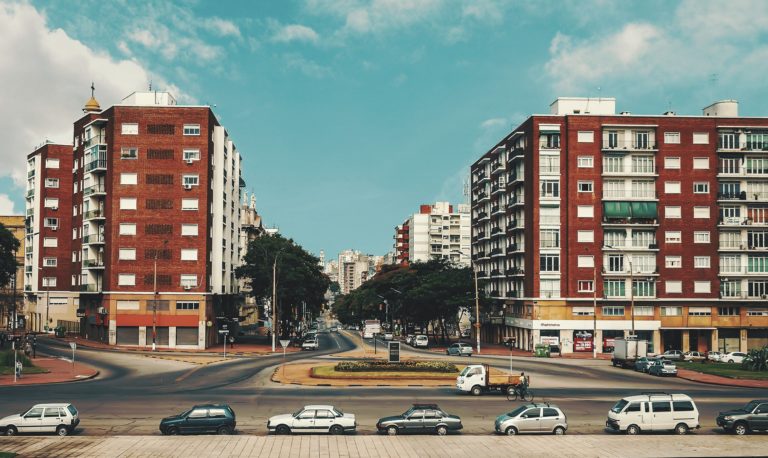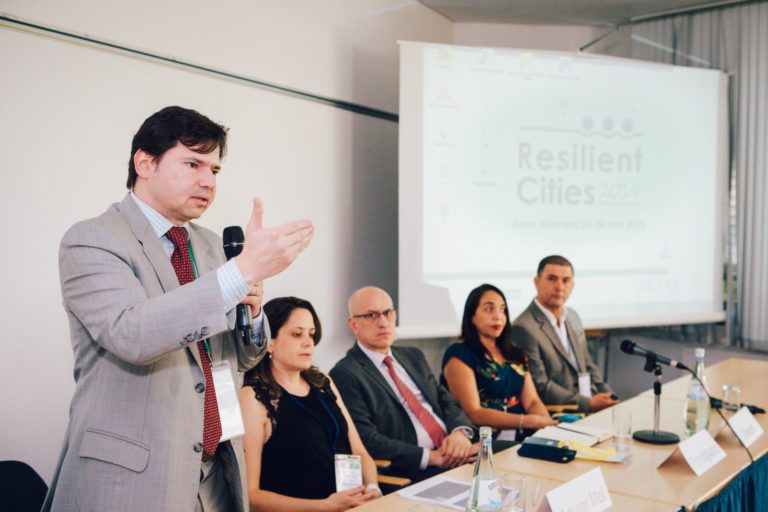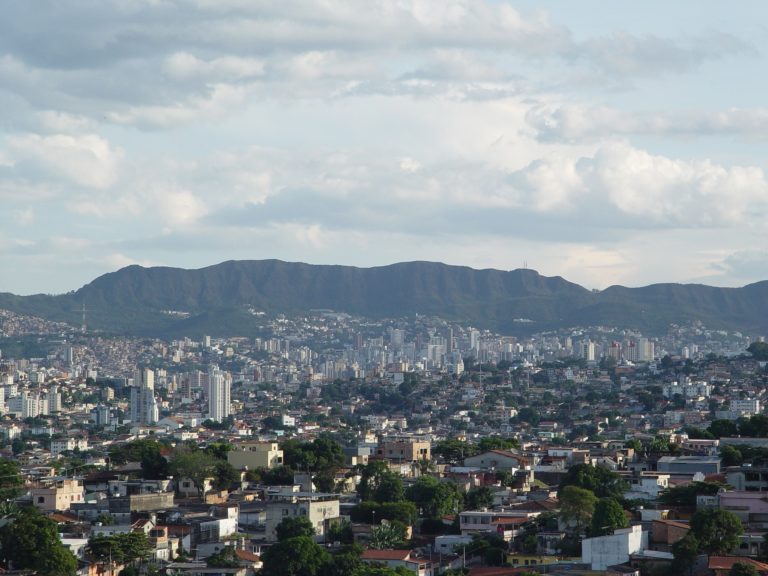Editor’s note: This article first appeared on the ICLEI blog.
One of the most urbanized regions in the world, over 80 percent of the population in Latin America lives in cities. Cities throughout the region are focusing on building resilience through improved environmental management, and the integration of biodiversity and nature-based solutions.
In Uruguay, flooding has become a consistent problem for urban areas. The country’s rainfall patterns have been changing from continuous smaller amounts of rain to shorter, more intense rainfalls. Fernando Puntigliano, General Director for Environmental Development, Montevideo, explained that this is testing the Uruguayan capital’s resilience and increasing the urgency to find smart sewage solutions.
Home to 1.4 million residents, Montevideo has the second largest sewage system in South America but the system is continually put under stress due to the intense rainfall. The city has implemented several projects aimed at alleviating this stress and improving water management as the weather patterns change.
One type of intervention has focused on the expansion of the city’s green areas. These green spaces serve as nature-based solutions that help protect the built environment of the city and mitigate risk for residents. Underneath these new green spaces, the city is installing large water tanks designed to capture heavy rainfall, alleviating the pressure on the regular sewage system.

The water tanks serve as an overflow system and are only necessary during heavy rains. Montevideo is also increasing the permeability of roads throughout the city by greening the transit corridors to make them more resilient to flooding.
However, the city knows that more buy-in and integration of key stakeholders into resilience planning is needed. For Puntigliano, increased collaboration between local government and the private sector could be a way to start building this critical coalition.
In neighbouring Brazil, many cities are also facing increasing resilience challenges. The city of Fortaleza, Brazil’s fifth largest city with a population of 2.6 million people, is also focusing on city greening. Fortaleza has taken on a major multi-year renovation project aimed at the protection of biodiversity. The Rachel de Queiroz Park, located in Atuação, one of the city’s poorest and densest areas, will add 203 hectares of green area to Fortaleza, forming a 10 kilometer long green belt and reaching 14 different neighborhoods. The project expects to see benefits to the area as diverse as improved mental health, recreational facilities, and social and economic development.
Related Articles: Association for Sustainable Development Alternatives: Protecting Biodiversity & Livelihoods | Deal of the Week: Natural Disasters Resilience in the Technology Age
Belo Horizonte, capital city of the state of Minas Gerais, is taking a participatory approach to resilience planning from the get-go. In 2016, Belo Horizonte conducted a comprehensive study of climatic vulnerability and identified 12 key areas throughout the city that are prone to flooding, dengue fever, heat waves and landslides.
In 2017, they launched a joint program that was conceived at the Resilient Cities Congress and developed by the Federal University of Minas Gerais and the Belo Horizonte municipality, that uses existing educational and research-based resources to help the city build innovative participatory planning models for adaptation to climate change impacts.

Through this project, COMPasso, the city developed a four-year action plan that will work in two highly vulnerable districts that are severely affected by heat waves, landslides and dengue fever. Since the program’s implementation, the management staff — which consists of professors, community members and the municipality — has established a technical understanding of the area’s vulnerabilities, engaged with the community and developed initial urban design proposals based on those consultations.
Currently, they are in the process of engaging with residents regarding environmental issues through the geodesign method, a collaborative negotiation design method where residents, design professionals, geographic scientists and information technologists come together to define, develop and implement an urban resilience action plan.

Natália Aguiar Mol, PhD Professor at the Federal University of Minas Gerais in Belo Horizonte advised that building collaborative and inclusive coalitions including universities, local communities and local government can be hugely beneficial but requires a solid understanding of all of the actors at the table and a project design that takes those diverse views into account. Not an easy challenge, but necessary for success.










